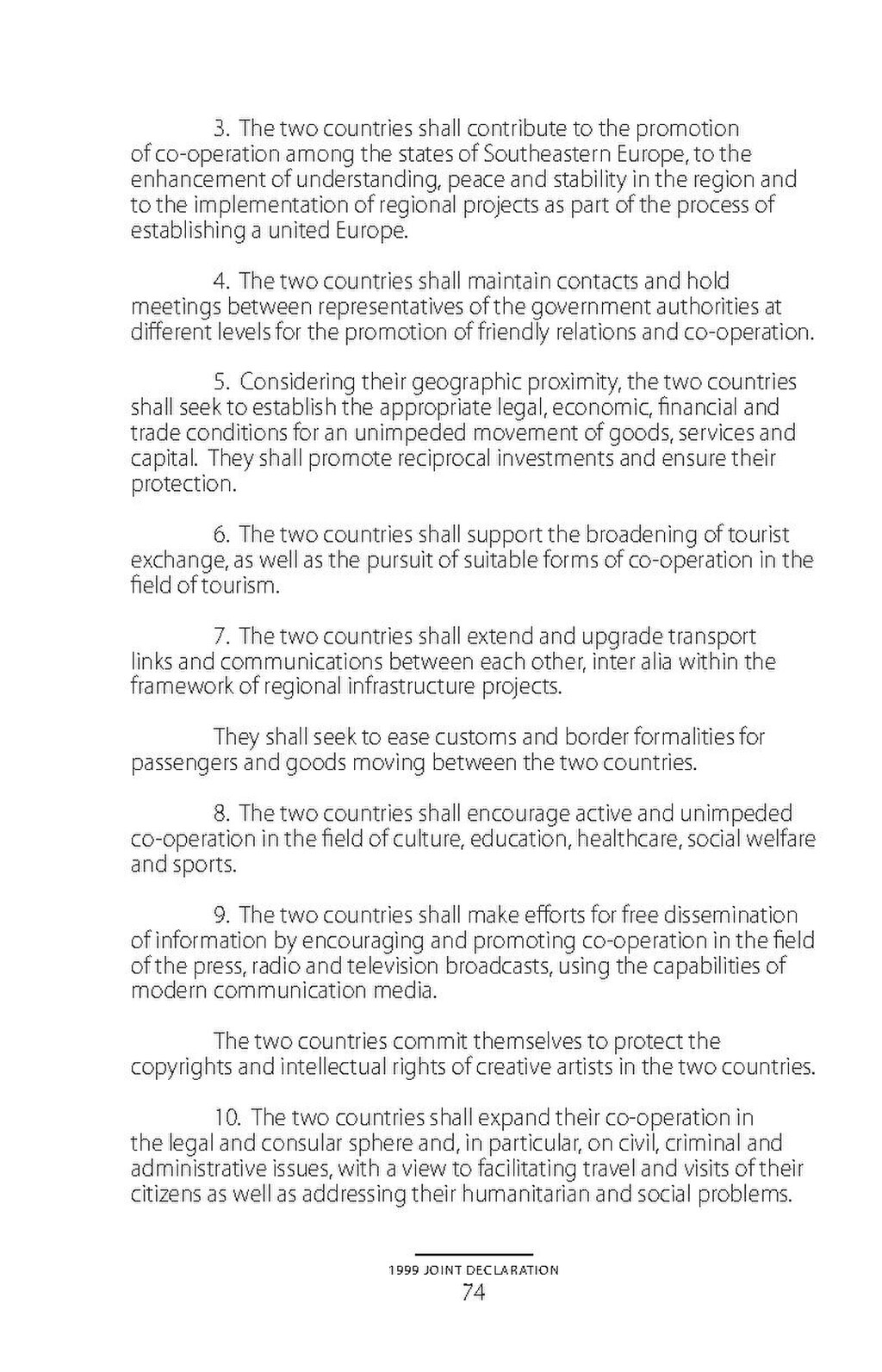3. The two countries shall contribute to the promotion of co-operation among the states of Southeastern Europe, to the enhancement of understanding, peace and stability in the region and to the implementation of regional projects as part of the process of establishing a united Europe.
4. The two countries shall maintain contacts and hold meetings between representatives of the government authorities at different levels for the promotion of friendly relations and co-operation.
5. Considering their geographic proximity, the two countries shall seek to establish the appropriate legal, economic, financial and trade conditions for an unimpeded movement of goods, services and capital. They shall promote reciprocal investments and ensure their protection.
6. The two countries shall support the broadening of tourist exchange, as well as the pursuit of suitable forms of co-operation in the field of tourism.
7. The two countries shall extend and upgrade transport links and communications between each other, inter alia within the framework of regional infrastructure projects.
They shall seek to ease customs and border formalities for passengers and goods moving between the two countries.
8. The two countries shall encourage active and unimpeded co-operation in the field of culture, education, healthcare, social welfare and sports.
9. The two countries shall make efforts for free dissemination of information by encouraging and promoting co-operation in the field of the press, radio and television broadcasts, using the capabilities of modern communication media.
The two countries commit themselves to protect the copyrights and intellectual rights of creative artists in the two countries.
10. The two countries shall expand their co-operation in the legal and consular sphere and, in particular, on civil, criminal and administrative issues, with a view to facilitating travel and visits of their citizens as well as addressing their humanitarian and social problems.
